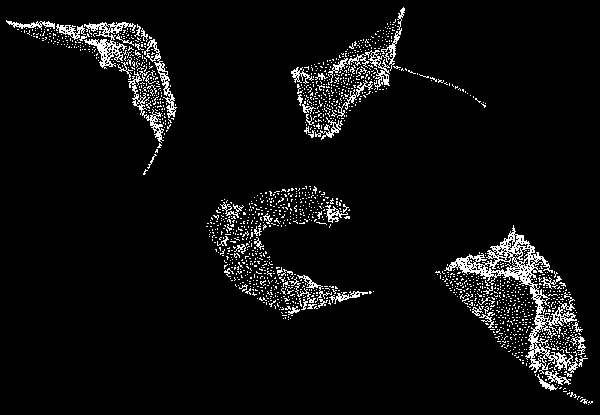The Second Law of Thermodynamics
Today, we see why time goes only from then to now. The University of Houston's College of Engineering presents this series about the machines that make our civilization run, and the people whose ingenuity created them.
Students have little trouble with the First Law of Thermodynamics -- the idea that energy is conserved. But the Second Law is a huge obstacle. And I think that might be the result of discontent more than any complexity. For what the Second Law says is that order becomes disorder. It says that no spontaneous process can ever be completely undone. It tells us the sun will eventually burn out and all living things will one day die. Mother Goose said it wonderfully well when she sings about a broken egg:
Humpty Dumpty sat on a wall.
Humpty Dumpty had a great fall.
All the Kings Horses and all the Kings men,
Couldn't put Humpty together again.
The odd thing about all this is that it's rooted in probability. The Second Law says nothing about individual molecules. Molecules aren't bound by it. The law comes about because vast numbers of molecules have to go from less probable arrangements to more probable ones. Our awareness doesn't reach down to the scale of molecules either. So the Second Law mirrors human consciousness.
As the Second Law follows probability to greater disorder it becomes a companion to our subjective perceptions of order and disorder. It's been called time's arrow because we only experience events in one direction. In one of his hymn texts, the seventeenth century mystic Isaac Watts caught this directionality of time in the haunting words,
Time, what an empty vapor 'tis;
and days how swift they are.
Swift as an Indian arrow flies;
or like a shooting star.
Yet a closer look tells us that the true state of affairs is not so dreary. The less well-known principle of Le Chatelier and Braun limits the Second Law. It says that when natural processes go to greater disorder, they at least summon up resistance to their own completion. The best-known example is chemical reaction:
The hotter a flame becomes, the less complete combustion will be. Instead of racing to completion, burning opposes its own action. Rust likewise tends to cover metals with protective coatings that slow the process of rusting. Spontaneous processes degrade things, but nature always invokes processes that retard degradation. Nature protects us. It slows and inhibits the inevitable. It grants us time. You've probably heard Shakespeare's invocation of the Second Law in his play Cymbeline,
Golden lads and girls all must,
As chimney sweepers come to dust.
But remember that our coming to dust is muted by the Le Chatelier-Braun principle. We can grow old gracefully. The Second Law aims time toward disorder and decay, but Le Chatelier and Braun tell us that time's arrow is slowed -- that it's possible to sustain and enjoy a measure of beauty and order along the way.
I'm John Lienhard, at the University of Houston, where we're interested in the way inventive minds work.
(Theme music)
The Second Law of Thermodynamics is detailed in any undergraduate thermodynamics text. I especially recommend Reynolds, W.C., and Perkins, H.C., Engineering Thermodynamics. Garden City, NJ: Doubleday and Co., Inc., 1966, Chapter 11.
My favorite sources for the principle of Le Chatelier and Braun are Epstein, P.S., Textbook of Thermodynamics. New York: John Wiley & Sons, Inc., 1937, Chapter 21. Or Callen, H.G., Thermodynamics and an Introduction to Thermostatistics. New York: John Wiley & Sons, 1985, Sections 8.4 and 8.5.
The original formulation of the Second Law of Thermodynamics was made by Sadi Carnot. See: Carnot, S., Reflections on the Motive Power of Heat. (tr. R. Thurston) New York: ASME, 1943.
This is a greatly modified version of old Episode 121.
Puisque tout passe, faisons la melodie passegere,
celle qui nous desaltere aura de nous raison.Chantons ce qui nous quitte avec amour et art;
soyons plus vite qui le repide depart.
Since all is passing,
Retain the melodies that wander by us.
That which assuages when nigh us,
Shall alone remain.Let us sing what will leave us
With our love and art.
Ere it can grieve us,
Let us the sooner depart.
Ranier Maria Rilke;
from Poemes Français
